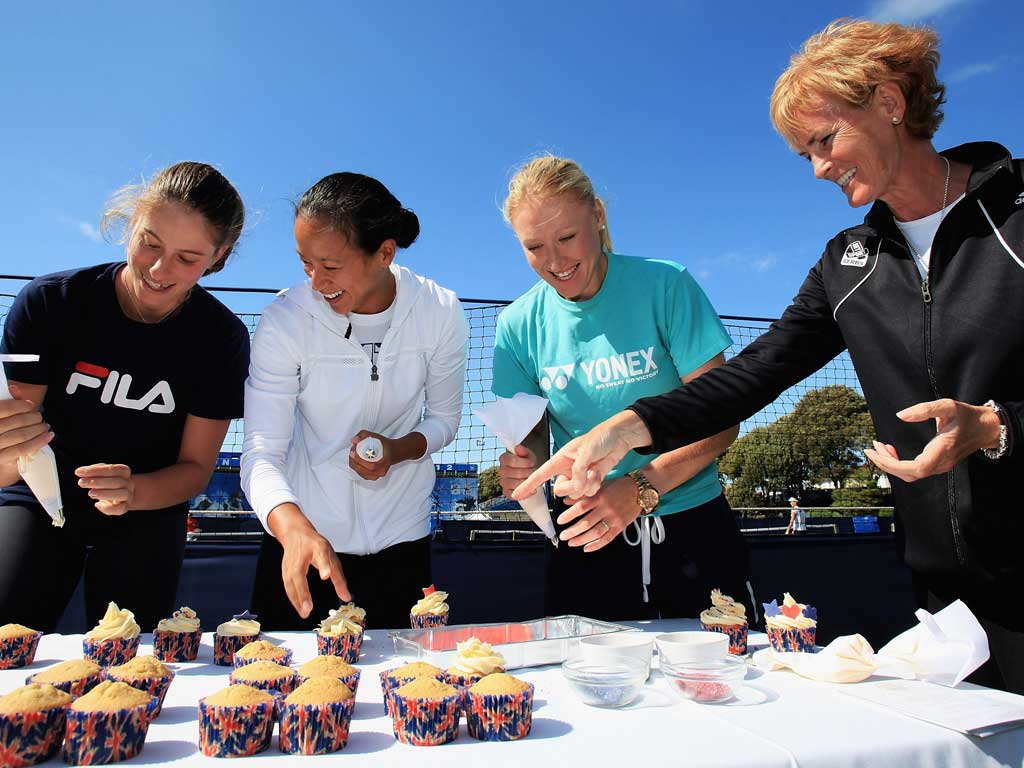Meet the Hungaro-Aussie Brit...
Johanna Konta has three passports, a world ranking of 217 – and a wild card into Wimbledon

Have racket, will travel.
Changing national allegiance has become part of the way of modern tennis, and the Wimbledon crowd will get their first view this week of the latest addition to the British ranks: Johanna Konta, who has Hungarian parents, was born and raised in Australia but has lived in Britain for the past seven years. She became a British citizen last month and will compete at the All England Club at senior level for the first time.
Konta, a 21-year-old of great potential, is by no means the first to follow such a route and will surely not be the last. Greg Rusedski spent his first 17 years living in Canada – his father had emigrated from Ukraine and his mother was from Yorkshire – and did not become a British citizen until he was 22. More recently, Laura Robson was born in Melbourne to Australian parents, came to Britain with her family when she was six and became a British citizen four years ago.
Others, however, have slipped through the net. When Serbia and Montenegro played a Davis Cup tie in Glasgow six years ago one member of the visiting team and his family held informal discussions with the Lawn Tennis Association about possibly moving and even switching national allegiance. The player's name? Novak Djokovic.
In a more fluid world it is inevitable that nationality sometimes become blurred – England's rugby and cricket teams have several players who were born and raised overseas – but in tennis a distinct pattern has emerged. Players from poorer lands, particularly in eastern Europe, are moving, often with their families, to countries that offer them good training facilities, sometimes in exchange for their citizenship.
Kazakhstan is the most striking example. The four highest-ranked men from Kazakhstan and the top three women are all Russians who have switched nationality in recent years. The players' lives are made easier and generally the only payback expected is to play for their adopted country. Kazakhstan's men have subsequently reached the Davis Cup's elite World Group, while the country's women have just enjoyed their best-ever run in the Fed Cup.
Most players consider Australia too remote to be their base, but good weather and training facilities are still an attraction. Three of Australia's current top-six women are former eastern Europeans who changed their national status. Jelena Dokic's family moved from Serbia to Australia 18 years ago, while Jarmila Gajdosova (born in Bratislava, Slovakia) and Anastasia Rodionova (born in Tambov, Russia) were given Australian citizenship in 2009.
Most of the recent switches in allegiance are purely down to tennis considerations, but the granting of US citizenship last year to Varvara Lepchenko, who is from Uzbekistan, recalled the examples of Martina Navratilova and Ivan Lendl, who settled in the United States after fleeing the Communist regime in Czechoslovakia. Lepchenko, her father and sister applied for political asylum when at a junior event in Florida 11 years ago and never went home. Lepchenko's mother was not allowed to join them for more than four years.
Konta now has Hungarian, Australian and British passports. Born in Sydney, she went initially to the Sanchez Casal academy in Barcelona before her parents decided to settle in Britain in 2005 for the sake of her tennis career. "Australia is so far and we were looking for either a base in Europe or the US just to be at the heart of things," the world No 217 said. "I feel British because I've lived here for seven years now, my friends are here, all my [tennis] support systems are here."
Konta, who speaks with barely a trace of an Australian (or indeed Hungarian) accent, lives in Eastbourne and trains at the National Tennis Centre in Roehampton. A fine athlete with a big serve and powerful groundstrokes, she describes herself as an aggressive baseliner.
Konta has had little experience of grass. Her only other visit to Wimbledon was four years ago, when she played in the junior tournament, and this will be her first experience of a Grand Slam senior event. Having been granted a wild card, she has a tough first-round draw against the world No 30, Christine McHale, of the United States.
"Obviously the public won't really know me like the other British girls, so it will be interesting to see how much support people will actually come and give me," she said. "I've been walking round trying to get myself acclimatised to the whole place. It's a little overwhelming."
Case studies in changing flags
Yaroslava Shvedova (Russia to Kazakhstan)
Born in Moscow but has represented Kazakhstan since 2008 – in 2010 became first Kazakh to win a Grand Slam title (Wimbledon women's doubles) and added US doubles title.
Alex Bogomolov Jnr (US to Russia)
Born in Moscow but changed nationality last year after living most of his life in Florida. US Tennis Federation demanded repayment of $75,000 to cover grants and coaching costs.
Join our commenting forum
Join thought-provoking conversations, follow other Independent readers and see their replies
Comments